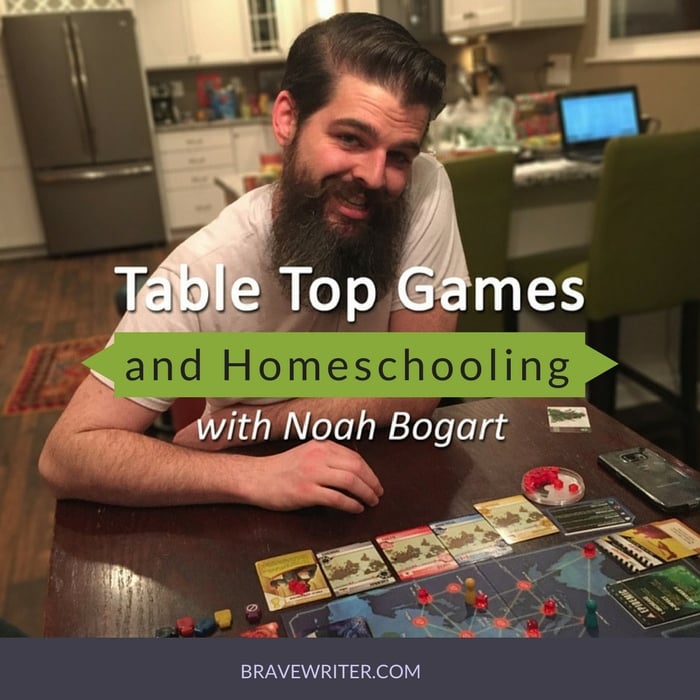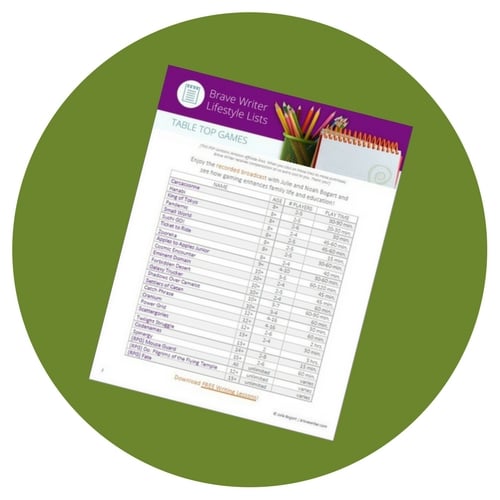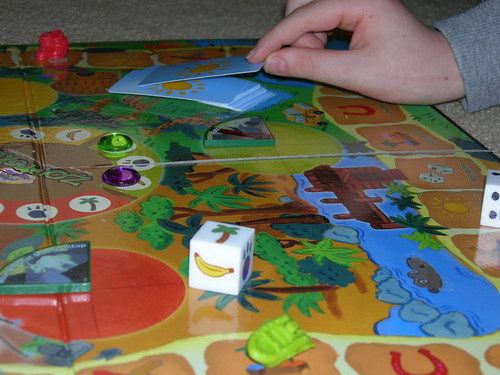
My son, Noah, keeps 20+ games in the trunk of his car. Why?
Because you never know when a chance to play a game with a group of people may pop up!
By popular request, Noah joined me to share his PASSION for games—the kind that don’t require a computer or gaming system. We looked at the physical products (didn’t just talk about them), and he shared age ranges, styles of games, and which ones to try based on your family’s preferences.
Enjoy the broadcast below (also download a list of the games mentioned) and see how gaming enhances family life and education!
Free Download of Games Mentioned
Includes recommended ages, number of players, and play time!
 DOWNLOAD PDF
DOWNLOAD PDF
You can buy the games on Amazon. Click on the titles below to purchase (Note: this post contains affiliate links. When you click on those links to make purchases, Brave Writer receives compensation at no extra cost to you. Thank you!):
Carcassonne
Hanabi
King of Tokyo
Pandemic
Small World
Sushi GO!
Ticket to Ride
Zooreka
Apples to Apples Junior
Cosmic Encounter
Eminent Domain
Forbidden Desert
Galaxy Trucker
Shadows Over Camelot
Settlers of Catan
Catch Phrase
Cranium
Power Grid
Scattergories
Twilight Struggle
Codenames
Spinergy
(RPG) Mouse Guard
(RPG) Do: Pilgrims of the Flying Temple
(RPG) Fate
Also, check out your area for local game stores! Many keep games available for anyone to come in and play with friends or family (with staff who can explain rules when needed), and some also host events and tournaments.
Informative website: BoardGameGeek



















